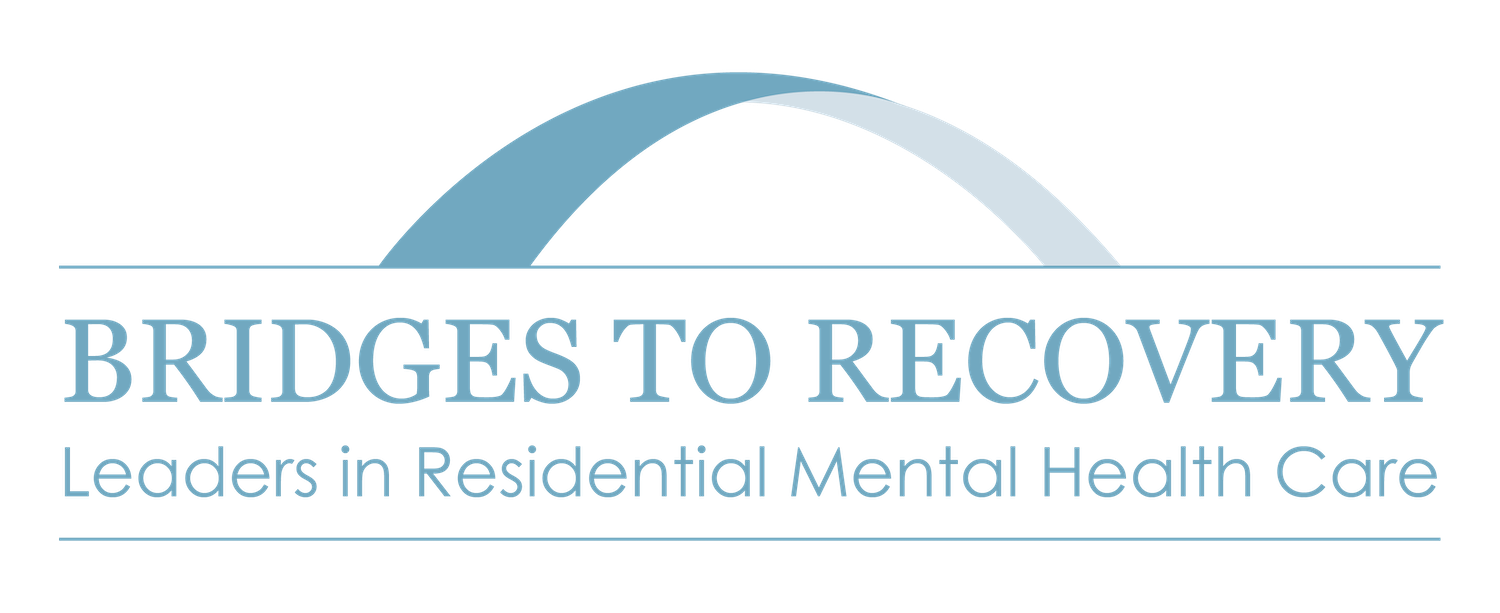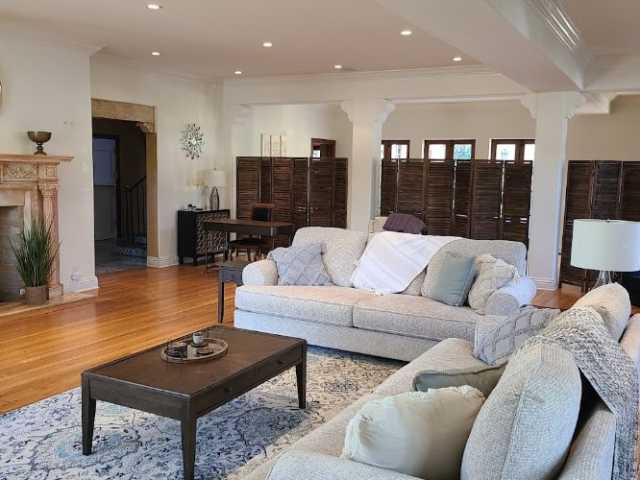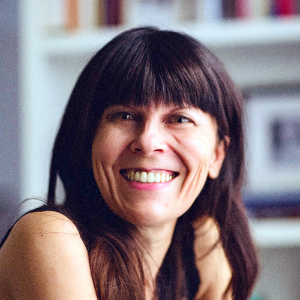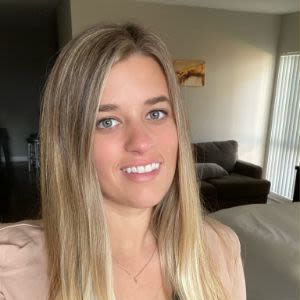Learn More
Los Angeles, California, United States
Bridges to Recovery
Unclaimed
Unclaimed
Unclaimed

Contact Bridges to Recovery
Connect with Bridges to Recovery by calling them directly.
Are you the owner of this center?
Claim this center
Similar Centers to Consider
About Bridges to Recovery
Bridges to Recovery has 2 spacious residences in Los Angeles. They specialize in treating mood disorders, anxiety disorders, trauma disorders, personality disorders, psychotic disorders, and co-occurring disorders. They also treat failure to launch, high-functioning depression, nervous breakdowns, and complicated grief. Bridges takes a holistic approach to healing, aiming to restore each aspect of clients’ mental health for lasting recovery.
Clinically Led Mental Health Care
Bridges to Recovery provides each client with their own doctor and a minimum of 5 individual psychotherapy sessions per week. Thorough assessments and evaluations help guide treatment, and give clients accurate diagnoses. They help clients heal from post-traumatic stress disorder (PTSD), obsessive compulsive disorder (OCD), panic disorders, childhood trauma, schizotypal disorder, histrionic personality disorder, and much more. Bridges to Recovery’s evidence-based therapies include cognitive behavioral therapy (CBT), eye movement desensitization and reprocessing (EMDR), family therapy, and somatic experience therapy, among others. Yoga, meditation, physical fitness, and acupuncture are some of the holistic therapies they provide.
Adaptive And Personalized Treatment
Bridges to Recovery has a flexible technology approach for professionals who need to tend to work responsibilities. Clients in private rooms can bring their pets. Weekly team meetings keep clients’ treatment attuned to their changing needs, with each staff member collaborating for highly effective care. Clients’ primary therapists are all masters or doctoral-level and licensed. Bridges to Recovery is accredited by the Joint Commission, meeting treatment standards in all areas.
Creative Expression And Adventure
On weekends, clients can enjoy activities like hiking and movie evenings. Bridges to Recovery also offers art therapy and process groups. Pottery classes complement art therapy and allow for creative expression. Equine therapy allows clients to interact with friendly horses under the guidance of a handler. Families can visit too, and stay in touch with their loved one throughout treatment.
Read More

Luxury rehab centers offer a unique blend of luxurious amenities and high-quality treatment. From private suites to gourmet dining, personal trainers to spa treatments, these facilities provide a high level of comfort and discretion.

Personalized Mental Health Care
Starting with assessments, Bridges to Recovery crafts personalized treatment plans with each client. Bridges uses medications in treatment as needed. They safely treat psychotic conditions like schizophrenia and schizoaffective disorder. Bridges to Recovery additionally uses clinical modalities to treat grief and trauma, keeping their care customized in each instance.

Whole-Person Support
Bridges to Recovery aims to heal all areas of the mind, body and spirit, not just symptoms. Through clinical, evidence-based, and holistic care, they can relieve symptoms and give clients tools for lasting success. Bridges’ creative and holistic outlets also contribute to whole-person healing, allowing clients to explore new interests and develop unique coping skills.

Family Involvement
Bridges to Recovery hosts family and couples therapy, and welcomes visitors during regular hours. Family therapy addresses conflict and educates all on mental health. Together, clients and their loved ones can heal as a unit, repair strained relationships, and learn how to make healing last.

Creative Processing
Clients at Bridges to Recovery can enjoy creative therapies like pottery and painting. Drumming and process groups offer other outlets. Through creativity and activities like yoga, clients can delve into their emotions in a safe and comfortable way.


Center Overview
Founded
2002
Occupancy
6-15
Languages
English
Accreditation
Joint Commission
Price & Length
$74,500 | 30 days, shared room
$109,500 | 30 days, single room
Extended options available
Who We Treat
Men
Women
LGBTQ+
Addiction and mental illnesses in the LGBTQ+ community must be treated with an affirming, safe, and relevant approach, which many centers provide.
Address
10201 Charing Cross Road, Los Angeles, CA, 90024

Care Options




Treatment
Specializations
Anxiety
Anxiety is a common mental health condition that can include excessive worry, panic attacks, physical tension, and increased blood pressure.
Learn More
Depression
Symptoms of depression may include fatigue, a sense of numbness, and loss of interest in activities. This condition can range from mild to severe.
Learn More
Post Traumatic Stress Disorder
PTSD is a long-term mental health issue caused by a disturbing event or events. Symptoms include anxiety, dissociation, flashbacks, and intrusive thoughts.
Learn More
Trauma
Some traumatic events are so disturbing that they cause long-term mental health problems. Those ongoing issues can also be referred to as "trauma."
Learn More
Approaches
Holistic
A non-medicinal, wellness-focused approach that aims to align the mind, body, and spirit for deep and lasting healing.
Learn More
Therapies
1-on-1 Counseling
Patient and therapist meet 1-on-1 to work through difficult emotions and behavioral challenges in a personal, private setting.
Learn More
Meditation & Mindfulness
A practiced state of mind that brings patients to the present. It allows them to become fully aware of themselves, their feelings, and the present moment.
Learn More
Art Therapy
Visual art invites patients to examine the emotions within their work, focusing on the process of creativity and its gentle therapeutic power.
Learn More
Equine Therapy
Guided interactions with trained horses, their handler, and a therapist can help patients improve their self-esteem, trust, empathy, and social skills.
Learn More
Experiential Therapy
With this approach, patients heal by doing. Therapists help patients process difficult emotions to speak, using guided activities like art or dance.
Learn More
Eye Movement Therapy (EMDR)
Lateral, guided eye movements help reduce the emotional reactions of retelling and reprocessing trauma, allowing intense feelings to dissipate.
Learn More
Family Therapy
Family therapy addresses group dynamics within a family system, with a focus on improving communication and interrupting unhealthy relationship patterns.
Learn More
Massage Therapy
Massage therapy relieves physical and emotional tension, reduces pain, promotes relaxation, and improves emotion regulation.
Learn More
Medication-Assisted Treatment
Combined with behavioral therapy, prescribed medications can enhance treatment by relieving withdrawal symptoms and focus patients on their recovery.
Learn More
Psychoeducation
This method combines treatment with education, teaching patients about different paths toward recovery. This empowers them to make more effective decisions.
Relapse Prevention Counseling
Relapse prevention counselors teach patients to recognize the signs of relapse and reduce their risk.
Learn More
Somatic Experiencing
This method treats emotional trauma stored in the body. A therapist helps patients work through the physical feelings associated with emotional pain.
Learn More
Group Therapy
Two or more people meet with a therapist together. Patients get valuable peer support, strengthen interpersonal skills, and improve self-awareness.
Yoga
Yoga is both a physical and spiritual practice. It includes a flow of movement, breathing techniques, and meditation.
Learn More
Conditions We Treat
Schizophrenia
Schizophrenia is a serious mental health condition that causes hallucinations, delusions, and disordered thinking.
Grief and Loss
Grief is a natural reaction to loss, but severe grief can interfere with your ability to function. You can get treatment for this condition.
Personality Disorders
Personality disorders destabilize the way a person thinks, feels, and behaves. If untreated, they can undermine relationships and lead to severe distress.
Anxiety
Anxiety is a common mental health condition that can include excessive worry, panic attacks, physical tension, and increased blood pressure.
Learn More
Bipolar
This mental health condition is characterized by extreme mood swings between depression, mania, and remission.
Learn More
Depression
Symptoms of depression may include fatigue, a sense of numbness, and loss of interest in activities. This condition can range from mild to severe.
Learn More
Obsessive Compulsive Disorder (OCD)
OCD is characterized by intrusive and distressing thoughts that drive repetitive behaviors. This pattern disrupts daily life and relationships.
Post Traumatic Stress Disorder
PTSD is a long-term mental health issue caused by a disturbing event or events. Symptoms include anxiety, dissociation, flashbacks, and intrusive thoughts.
Learn More
Trauma
Some traumatic events are so disturbing that they cause long-term mental health problems. Those ongoing issues can also be referred to as "trauma."
Learn More
Substances We Treat
Co-Occurring Disorders
A person with multiple mental health diagnoses, such as addiction and depression, has co-occurring disorders also called dual diagnosis.
Learn More
Aftercare
Experience
Personal Amenities
Amenities
Special Considerations
Clients can bring their own pet(s)
For greater comfort and healing, pet-friendly treatment centers welcome dogs and animal companions to stay with their owners while they attend treatment.
Learn More
Pet Friendly
For greater comfort and healing, pet-friendly treatment centers welcome dogs and animal companions to stay with their owners while they attend treatment.
Learn More
Flexible technology policies
Centers with flexible technology policies allow professionals to stay in touch with work and give patients a greater sense of connection and normalcy.
Activities
Yoga
Yoga is both a physical and spiritual practice. It includes a flow of movement, breathing techniques, and meditation.
Learn More
Off-Site Activities
Off-Site Amenities
Professional Staff

Michaela Carpaccio
Clinical Director
LMFT

Malia Lindy
Director of Operations

Katie Lonngren
Program Manager

Marc Gallagher
Director of Admissions
View More Team Members
We love hearing about your treatment experience
Help individuals and families seeking treatment by sharing your first-hand experience with this treatment provider. Review Guidelines.




























